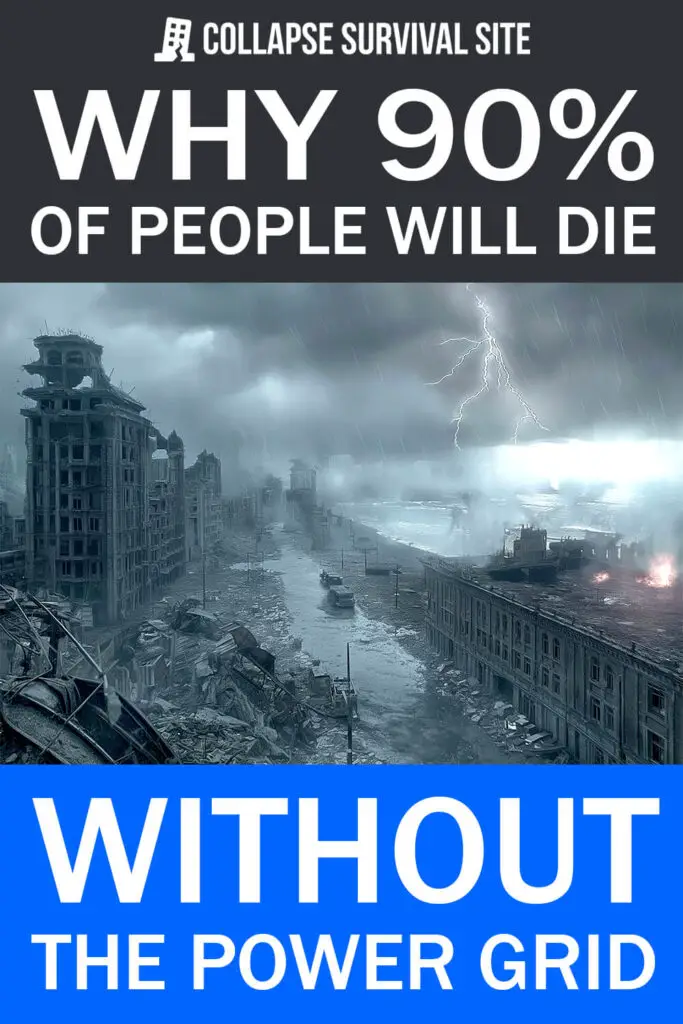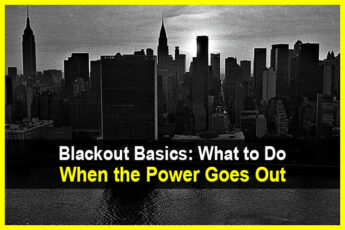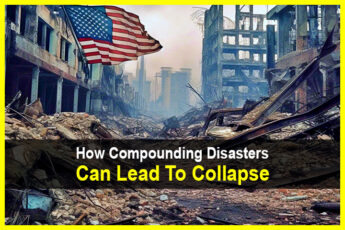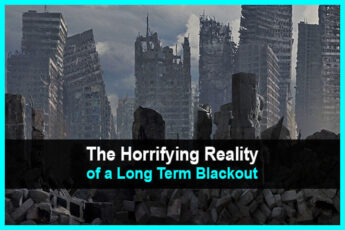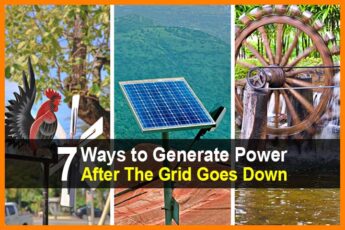Estimated reading time: 9 minutes
Electricity is the lifeblood of modern society. Our entire infrastructure is dependent on power drawn from the electrical grid, as well as much of what is in our homes.
Should the electrical grid go down, it would wreak havoc on the way we do things, bringing almost everything to a sudden and complete standstill. Society would no longer be able to continue as it has.
That very same electrical grid is the most fragile part of our infrastructure. Power lines go down, leaving people without electricity in just about any sizeable storm. That goes for winter storms too, where ice can build up on the wires, causing enough extra weight that it causes them to break.
Hurricanes can cause enough damage to leave whole regions without power for weeks or even months. There were still people without electricity up to a year after Hurricane Maria hit Puerto Rico.
But these storms are mere regional events. Those are easier to survive, because help can come from outside the affected area. Things would be a whole lot different if we lost the entire electric grid at the same time, leaving the entire country without power.
Want to save this post for later? Click Here to Pin It On Pinterest!
What Happens When The Grid Goes Down?
Most of us have experienced power outages at various times in our lives. We suddenly lose power in our homes, causing everything that runs on electricity to stop instantly. We rarely notice what that power outage does in the wider world around us.
In a true grid-down situation, there would be much more that would stop working than in a normal power outage. Radio stations, water purification plants and pump houses, hospitals and even some stores have emergency generators to provide power.
But even those would stop running after a few days, if they couldn’t get more fuel for their generators. We’d see a wide variety of things just stop working within days, such as:
- Traffic lights would be out.
- Gas stations wouldn't be able to pump gas, nor would refineries be able to produce more.
- City water would stop running.
- City sewage plants would be unable to process sewage, causing sewage lines to back up
- Pretty much all communications would be out, including radio, television, telephone, and internet.
- Store cash-registers wouldn't work. Grocery stores would have to throw out meats, frozen foods, dairy and anything else that can spoil, if those food items aren’t stolen by looters first.
- Stores would quickly run out of critical supplies, as they would not be able to order replacement goods.
- Traffic would come to a standstill, due to the lack of gasoline and diesel.
- The air traffic control would stop working; pilots wouldn’t be able to communicate with the ground and any ground-based navigational aids would be lost once generators lost power. Pilots would have to land quickly, or take the risk of landing without those aids. There would probably be midair collisions, especially near airports, as multiple airplanes tried to land.
- Hospitals would quickly be unable to provide adequate healthcare, as they wouldn’t have electricity and would run out of supplies.
- Pharmacies would quickly run out of prescription medicines.
- Most businesses would be closed.
- The shipping industry, both overland and over the water, will come to a standstill without fuel to burn.
There are other things as well, which we could add to this list; but these are the major ones.
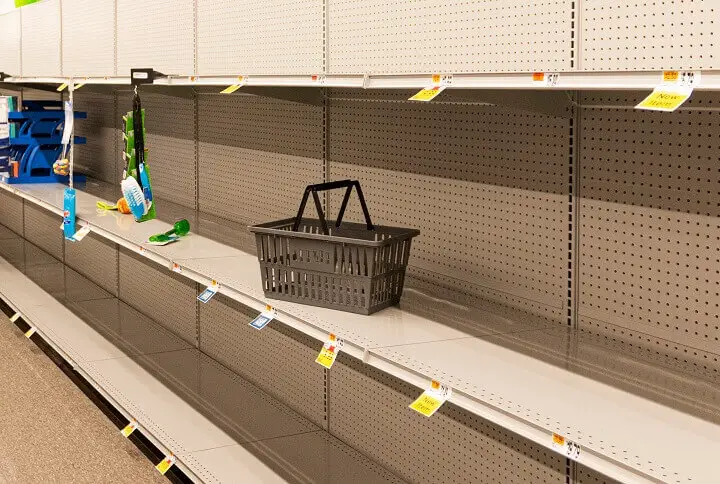
How Will This Affect Human Life?
According to the report of the EMP Commission, about 90 percent of the population would lose their lives during the first year after an EMP takes out the electrical grid. However, this doesn’t just apply to an EMP. Anything that would cause a loss of the electrical grid would have the same effect, for the same reasons.
First Wave of Deaths
The fist wave of people to die off after the loss of the grid would be those who need to take daily doses of prescription medicines to treat chronic medical conditions. More than 131 million Americans take medicines daily to deal with those conditions; some 66 percent of all the adults in the United States.
While some of them would be able to survive without those medicines, there are many more who wouldn't be able to survive, such as diabetics who require insulin injections. It all depends on what their condition is, how serious it is, and whether there is an alternative, such as a natural remedy that they can take.
Second Wave of Deaths
City sewage is an important part of curtailing the spread of disease, so with that out, we can expect an epidemic to hit within a few weeks after losing power. It doesn’t matter what the disease pathogen is, as any would spread easily from lack of proper sanitation.
Human waste is filled with dangerous pathogens, which will likely get into whatever surface water supplies exist, because of people bathing in those water sources. Once there, disease would rapidly spread through society, causing the second wave of death.
Medical professionals would end up trying to treat the resulting epidemic with one hand tied behind their back. Without electricity, their ability to diagnose would be severely hampered, and with drug supplies running out, their ability to properly treat their patients will be curtailed. Many would die.
Third Wave of Deaths
But the biggest killer would be the third wave of deaths, which would be people dying of starvation. Some 83 percent of the US population lives in urban areas, which clearly defines them as not being farmers.
While some may have vegetable gardens, few will be growing enough food to live on. We are accustomed to buying our food in grocery stores and restaurants, not growing it ourselves.
The average grocery store stocks three days’ worth of inventory; less for fresh foods, which are often delivered daily. Chances are pretty good that those stores will be looted, with people taking everything that looks useful. But even if that doesn’t happen, they’ll run out of food quickly.
The food in people’s freezers would start thawing after about 24 hours, making it imperative to either eat it or preserve it in some other way. But few people know how to properly preserve food, especially meats.
Everyone will eat as much as they can, before it goes bad…or even after it goes bad. Even so, it won’t take much time to eat up the available supplies of fresh meat. Canned foods would last longer, but even there, most people only have a limited supply on hand.
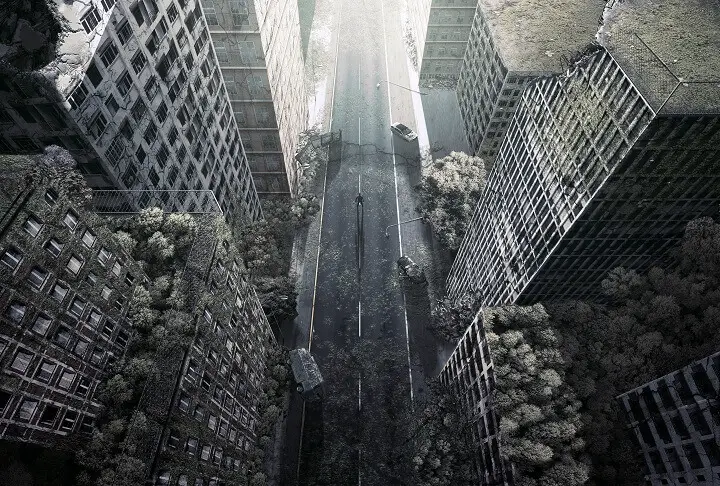
We can count on some people trying to organize and “redistribute” whatever food sources they can find. But even if they are able to find every prepper’s stockpile, that will only extend the lifespan of most communities by a few days.
Preppers stockpile enough for their families; not for their communities. When there are 50 people trying to eat off of one prepper’s stockpile, their one-year stockpile supplies food for a week, no more.
It will be necessary for those who survive to put all their efforts into growing food, so as to have enough to keep going. Having to farm, without the advantage of internal combustion engines to power our farm equipment, means doing everything by hand. That’s a lot more time-consuming and a lot less efficient. But without investing all that manual labor, we would all die.
Not only will this wave of deaths be the biggest, it will also last the longest, starting a couple of months after the lights go out and lasting at least a full year. It will take about that long for locally grown food to take over, making up for the loss of our food infrastructure. Even then, people will be on a near-starvation diet, rather than having in abundance.
Fourth Wave of Deaths
The lack of food will likely lead to the next and final wave of people dying off, as criminals and those who live near the edge of lawlessness gang together to steal whatever they can, from whoever has it.
Killing others in order to get food to keep themselves alive will not be much of a moral issue to these people. In fact, this may go as far as cannibalism, as people seek anything they can eat. When there is no other food available, there are those who will resort to literally anything.
This final wave will need to be killed off, before they kill off those who are trying to rebuild society and grow food for their families. That will require local communities working together and forming militias to fight, protecting their families and the community at large.
Surviving The Loss of The Electric Grid
As a survival problem, the loss of the electric grid is the most challenging scenario we face today. While mankind didn’t need electricity to survive most of history, we have become highly dependent on it. It is that dependency which will cause us the greatest problem.
The only answer is to be able to survive without the use of electric power. That’s possible; but it’s a lot of work. It means becoming self-sufficient in the fullest sense of the word. But it means more than that, in that we’ll need to help others become self-sufficient as well.
If we want our children to survive, and aren’t just concerned about surviving ourselves, they will need a community around them. Mankind needs a community, not just to procreate, but to fulfill all the needs of our lives.
Turning your home into a homestead, where you are growing all the food you eat is a good start. But you need to be ready to help your neighbors do the same, so that your children will have neighbors once you are gone.
That’s much harder, as those neighbors probably won’t be preppers themselves. All they’ll have, that they can contribute, is the ability to work; you’ll have to provide the knowledge, tools, and even the seed.
Like this post? Don't Forget to Pin It On Pinterest!


